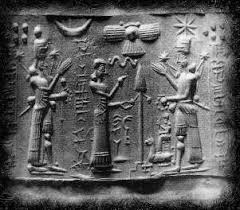Articles about maps
History of cartography
All about topographic maps
Topographic maps and traveling
Two centuries of Russian Cartography
Navigation software and offline maps
History of cartography
Cartographic maps of ancient East
Cartographic maps of ancient Rome
Cartographic pictures of primitive people
Cartography and geography in ancient Greece and Hellenistic countries
Cartography and geography in Armenia and in countries of Arab Caliphate
Cartography in slave-holding China
First Maps
Literature and Astronomy
Pythagoras and first hypothesis about Earth’s size
Strabo and cartography
The development of Russian Topography
The origins of astronomy
The origins of cartography
Why we so many ancient maps diasappear?
The origins of astronomy
Astrology started to gain popularity while some more ancient forms of adoration of gods including bloody sacrifice decreased its influence. One say that a large number of unexplained phenomena, constantly visible in the sky, caused the development of polytheism based on the behavior of celestial bodies.
Many centuries wandering tribes of Babylonia and Assyria, guarding their flocks by night, with fear and awe watched the sun going down and stars appearing on the black dome of the sky. People saw how stars slowly rise to the zenith, and then again descend and eventually disappear over the horizon on the other side.
Adoration of celestial bodies entrusted on priests who served the cult in the valleys of the Tigris and Euphrates, a serious burden of responsibility. Once celestial bodies became the rulers and guardians of the universe, the priests, respectively, had to examine the frequency of their movements and relationships with each other - because if you can correctly interpret behavior of heaven, any disaster can be avoided, and the anger of the gods can be soften. Consequently, if the priests were able to predict in advance the behavior of the sun, moon and stars, it led to a sharp increase in their social status. So it happened that the religious cult took over the responsibility for the collection of data related to the earth's nature and the laws of the universe.
Keepers of temples honestly kept chronicle of the behavior of celestial bodies. Astrological data was passed from generation to generation without any disturbances and breaks for more than two thousand years, so that the vast number of astonishing information has been accumulated by the time of Alexander the Great. There was a well-designed system, the complexity of which varied depending on the diligence and education of the priests that kept record.
Once the data have accumulated enough to make any conclusions, five planets have been included in the system.
- Jupiter became associated with Marduk, who, in addition to numerous other duties, was a patron of the ancient city of Babylon.
- Venus was associated with Ishtar - the main goddess, mistress of all life.
- Saturn was identified with Ninib who sometimes acted as a healer-god.
- Mercury was Naboo - "bearer of the law", the god of wisdom, and inventor of the art of writing.
- Mars was Nergal - "fighter" and "furious king" who was also associated with the lower world, and was lord of the dead.

Celestial bodies not included in astrotheological system, became part of the complex and multi-faceted system of myths, from which emerged the constellation. This division of stars into groups (practically in the form in which it originated in Babylon, perhaps even 2800 years BC.) was presented to greeks by two famous Greek astronomy - Aratus and Eudoxus.
The behavior of the moon was also recorded in detail. The exact position of the moon in the sky, the position of its "horns" of the halo that can be seen with a young moon, and the ring around the full moon - was all carefully studied by astrologers of Babylon and Assyria. Eclipses - solar and lunar - were the most spectacular manifestation of divine activity and therefore deserved special attention.
Over time, the observation of stars in Babylon assumed the character of altruistic research. This natural step occurred so slowly and gradually that almost went unnoticed. As the observations become more complex, and researchers immersed in their discoveries, inevitably emerged new science - astronomy. One can argue whether the collapse of the Babylonian polytheism was the cause or the consequence of this phenomenon. There is another interesting question: why works of astrologers survived, while many sculptures related to this pagan cult were destroyed? It is clear, however, that both astronomy and mathematics, freed from the restraining influence of religion, began to develop rapidly. New discoveries in one field stimulated active search in another. Developing in close collaboration, astronomy and mathematics eventually achieved a status of real science. And the most significant impact on the further development of both of them caused a huge number of records with observations of the sky, inherited from the Babylonian priests.



